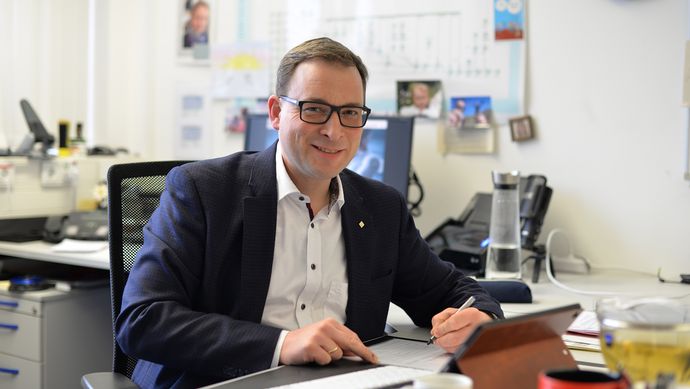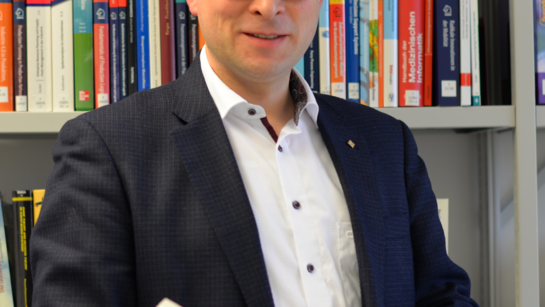
Head of the Research Department Cognitive Social Simulation
Prof. Dr.-Ing. Ingo Timm
Organizational unit
Cognitive Social Simulation
Address
(Trier)
Gebäude HBehringstraße 2154296 Trier

Publications
All publicationsProfile
Prof. Ingo J. Timm has been a professor at the University of Trier since 2010, is head of a research department at the German Research Center for Artificial Intelligence (DFKI), and chairman of the Future Forum for Public Safety (ZOES e.V.). His research focuses on cognitive social simulation and distributed AI. His work centers on autonomous software systems, intelligent assistance systems, cognitive decision-making models, social interaction of autonomous systems, and (social) simulation.
In recent years, one focus has been on municipal crisis management in the COVID-19 pandemic, for which new analytical approaches were created using cognitive social simulation and are currently being further developed in the SEMSAI project and the associated Modeling Network for Severe Infectious Diseases (MONID).
In addition, his research is applied to the conception, analysis, and design of complex systems as well as to intelligent information systems in the areas of healthcare, Industry 4.0, transformation and sustainability, and management in crisis and disaster situations.
GreenTwin
Grüner Digitaler Zwilling mit Industrieller Intelligenz für CO2-sparende kooperative Mobilität & Logistik im ländlichen RaumThe project GreenTwin (Green digital twin with artificial intelligence for CO2-saving cooperative mobility & logistics in rural areas) is dedicated to the development of sustainable regional logistics…

AScore
AScorePolitical decisions on measures to contain a pandemic must be made promptly and under great uncertainty. Even though the federal and state governments set the framework, many of the measures must be…

HealthcAIre
HealthcAIreZiel dieses Projekts ist es, einen Beitrag zur Schaffung struktureller Grundlagen für den Einsatz Künstlicher Intelligenz in der Medizindomäne zu leisten, so dass Potenziale auch kurzfristig…
SEEvacs
SEEvacs - Simulation-based Evolution and Evaluation of Vaccination Strategies in COVID-19-pandemicsIm Rahmen des Projekts EpideMSE am Fraunhofer-Institut für Techno- und Wirtschaftsmathematik (ITWM) ist eine Simulationsplattform entstanden, die die tagesaktuellen COVID-19-Fallzahlen des RKI…
SoSAD
Social Simulation for Analysis of Infectious Disease ControlThe current COVID 19 pandemic is a major challenge for society and the healthcare system. The behavior of people is very much dependent on their environment (emergence effect), as shown, for example,…


